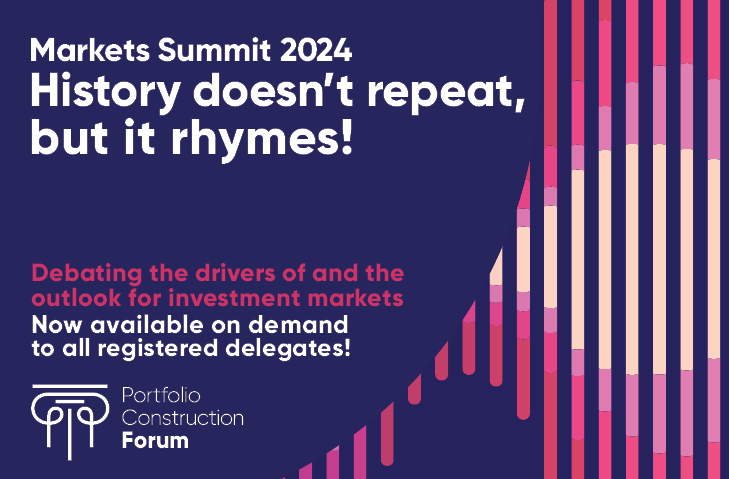Three issues are key to deciphering what 2024-25 will hold for the US economy, which is now the sole major engine of global growth. I will stick my neck out and offer some illustrative probabilities.
Three investment experts offer and debate their high conviction thesis on a long-term, deep rooted structural change impacting markets over a decade or more.
Australia's residential vacancy rate is at a record low and net overseas migration at a record high. But, the banks can no longer participate in the market like they used to, providing greater opportunity for real estate private credit.
This economic cycle will mean revert to a traditional business cycle - a cycle that may not exactly repeat but will rhyme with prior inflation cycles. Opportunities exist in global bonds in 2024 and 2025 no matter hard or soft landing outcomes.
Three articles provide us with insights into the impact that the growth in passive management has had on the performance of active managers; the risks taken by active managers and the general efficiency of markets; and, the behaviour of markets.
On the Hunt is a monthly lecture series focused on the human factors in investment portfolio construction, including the ethical implications. It will help you better identify and understand how investing biases, beliefs and behaviours impact portfolio construction practices - and therefore, investment outcomes - to help you build better quality investor portfolios.
After 15 years of economic upheavals, from the European debt crisis to the Covid-19 pandemic and Russia's invasion of Ukraine, the European economy appears set to underperform in 2024. But are appearances deceiving?
With heightened global geopolitical risks, reduced fiscal support from governments, a deflating Chinese property bubble, and an ongoing US commercial real estate crisis, 2024 is a year for investors to be nimble and tactical.
There's no such thing as "normal" for supply chains. The challenges for 2024 and 2025 that echo the past include logistics network disruptions, geopolitical risks and the cash costs of environmental policies - which make investing in supply chain security more important than ever.
Investors should explore opportunities beyond the ASX20, focusing instead on the Ex-20 index which provides exposure to Australia's future rather than its past.
The future state of the economy and markets depends, in part, on what people expect it will be. Understanding people's expectations, and how and why they form and revise them, has important implications for portfolio construction practice.
At this year's China Development Forum - the highest-level annual meeting of senior Chinese policymakers and top CEOs, policymakers, and academics - discussion focused squarely on the risk of China falling into the middle-income trap.
There's much to learn from history, but every time is different when it comes to markets. The backdrop for investing will require investors to identify how the outlook today intersects with our experiences of the past and where it differs.
Second term presidents tend to be more ideologically aggressive, since they are freed from the need to face voters again. Investors globally need to think through the implications of a second term for either candidate.
With just about every equity index globally dominated by a handful of companies, indexed investors might soon discover they are overweight future failure.
In 1990, Towers Perrin started spruiking the modern-day investment mandate. I must admit the concept of making investment managers far more accountable seemed rather good. Unfortunately, it most likely left clients worse off.
What's new with our live and on-demand continuing education, accreditation and certification programs.
Led by behavioural finance expert, Herman Brodie, the Behavioural Finance - Investment Decision-Making course will help you identify, analyse and evaluate the principal human preferences that influence decision-making in situations of uncertainty, so you can recognise and identify these preferences in others, to improve investment decision-making.



















